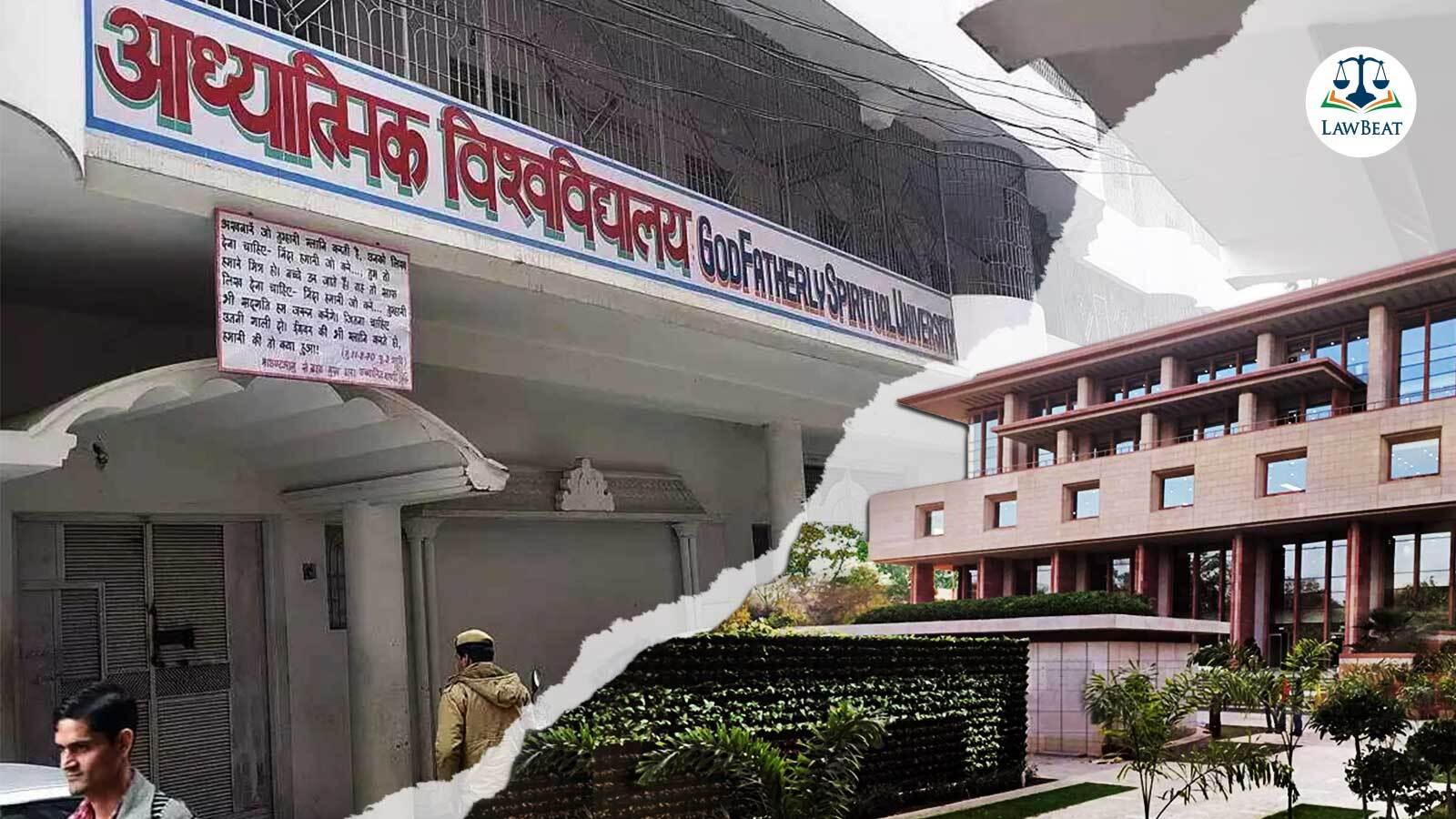Delhi High Court directs Rohini-Ashram to register itself under Women and Children’s Institutions (Licensing) Act, 1956

The division bench of the High Court directed the Rohini-Ashram to get itself registered under the Women and Children’s Institutions (Licensing) Act, 1956 within four weeks and listed the matter for November 10.
The Delhi High Court, on Friday, directed the Adhyatmik Vishwa Vidyalaya, a spiritual ashram in Rohini founded by self-styled spiritual preacher, Virender Dev Dixit, to get itself registered under the Women and Children’s Institutions (Licensing) Act, 1956.
A division bench of Chief Justice Satish Chandra Sharma and Justice Subramonium Prasad, directed the Counsel appearing for the Ashram, to complete the registration required under the Act, within four weeks. Accordingly, listed the matter for November 10.
Earlier, the division bench had sought the assistance of former Lieutenant Governor of Puducherry Kiran Bedi on a plea related to the welfare of women living in Rohini’s Ashram founded by self-styled spiritual preacher Virender Dev Dixit.
During the hearing, Kiran Bedi submitted two written submissions before the bench, and stated that the report submitted was crisp and sharp, and based on strong evidence.
The counsel for Ashram opposed the Status report submitted by Bedi and argued that the petitioner is a fake Non-government Organization (NGO) and that the other petitioner is related to the opponent Ashram.
Counsel also referred to a report dated July 27, 2018, submitted by the Institute of Human Behaviour and Allied Sciences (IHBAS) and stated that there was no report of sexual, physical, or any other harassment by the residents living in the Ashram and that there was no sign of psychological or any other stress in the residents.
Over the admission of a 17-year-old girl, the Counsel contended that she was admitted as her mother was along with her. It is further stated that during the joining of each and every male and female resident, the Ashram takes a copy of the Aadhar Card and Identity Cards of residents along with an affidavit from them that the residents would follow throughout their life. It was also contended that all such documents are with the Ashram.
Counsel also stated that the Ashram follows Shrimad Bhagwat Geeta and that all are equal, there are no Senior, Junior, or posts in their organization, and that they all are happy.
In April, a division bench of acting Chief Justice Vipin Sanghi and Justice Navin Chawla expressed grave concern. It directed a committee to be formed to supervise the functioning of the Adhyatmik Vishwa Vidyalaya, which has been in the news for allegedly committing human rights violations against its 162 female inmates.
The suggestion for the formulation of a committee was put forth by the Delhi Commission of Women to ensure that the women and children residing in the ashram do not suffer any violation of their fundamental or human rights. Swati Maliwal, chairman of the Delhi Commission for Women also submitted that the suggestions had been forwarded to the core to be examined.
The petition has been filed by the parents of Respondent No.4, Dumpala Meenavathi, who is also one of the residents in the ashram, stating that they have not been allowed to visit their daughter in the ashram, who has recently been complaining of severe back pain. In the present case, the Petitioners were represented by Senior Advocate Menaka Guruswamy.
The Petitioners had relied upon reports submitted by Advocate Nandita Rao and Ms. Swati Maliwal, Chairperson of the Delhi Commission for Women. The High Court by the said order dated December 19, 2017, had constituted a committee to inspect the premises of the ashram. The report of the team was shocking and scandalous.
The committee reported that the inmates were severely mistreated and kept in deplorable conditions. It claimed that the toilets of the ashram did not have doors and were also not given proper bedding to sleep in. Moreover, it also reported that all the inmates, some of whom seemed underage, claimed that they were residing in the ashram out of their own free will. When asked why they wished to stay in the ashram, they mechanically parroted the same line - that the world was in grave peril and that they have gathered together to save it.
Moreover, all the female inmates also seemed to be entirely averse to seeing their respective family members. The committee also found that the female inmates had addressed many letters to their families, in almost identical language, saying that they did not wish to meet them
The Court came to a prima facie view that the women of the ashram seemed indoctrinated and appointed Kiran Bedi to supervise and overlook the ashram's activities. The Court also directed the Delhi Government to oversee the activities of the ashram and to make sure that the inmates are not mistreated.
Case Title: DUMPALA MEENAVATHI AND ANR. v. UNION OF INDIA AND ORS. along with FOUNDATION FOR SOCIAL EMPOWERMENT v. UNION OF INDIA AND ORS.v. UNION OF INDIA AND ORS. along with FOUNDATION FOR SOCIAL EMPOWERMENT v. UNION OF INDIA AND ORS.
